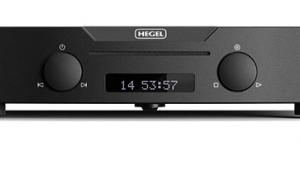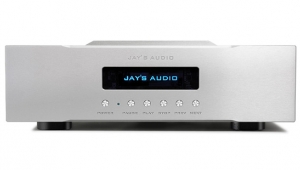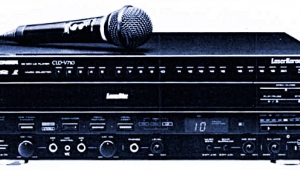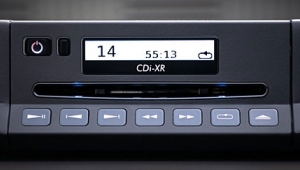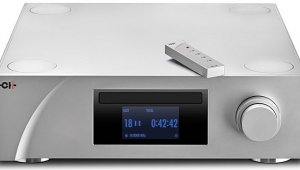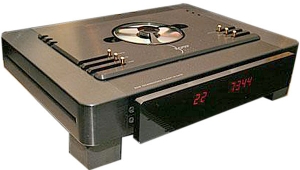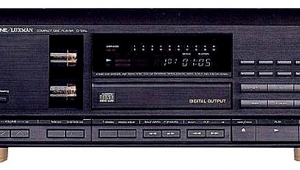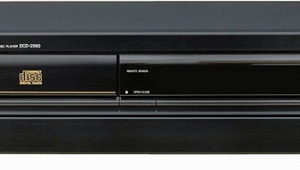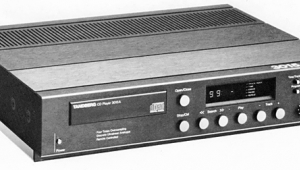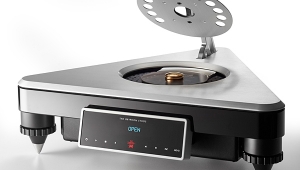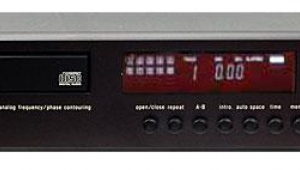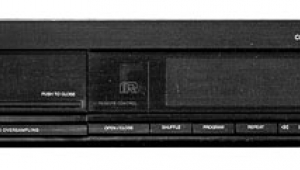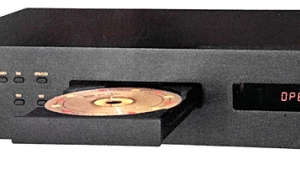| Columns Retired Columns & Blogs |
Rega Planet CD player Page 3
But let's listen.
As a player—we'll take up the Rega Planet as a transport in a moment—the Rega Planet produces a rich, full-bodied, dynamic (but not overdynamic) sound. There is much more of a sense of rhythmic pace, more of a foundation under the music than there is, for instance, with the Marantz CD-63SE. In Linnspeak, the Rega Planet plays tunes. Or as WP would say, the Rega Planet boogies. Not that this is a player just for rock'n'rollers, mind you. My tastes run mainly to classical and jazz.
Where the Rega falls down, if only slightly, is in spatial resolution—this compared with far more expensive players. It's very good, but not quite up there with the very best. I just had my Micromega Stage 2 updated to a Stage 6 ($1550). There is a tubelike beauty about the 6's midrange and treble, as well as a spacious, open sound, that the Rega can't quite match. But for almost twice the money.
The Rega Planet offers a smooth, grainless quality to the sound—even if there's not quite the exquisite delicacy and refinement of the Stage 6. The sound is crisp and well-articulated. The player sounds neither bass-shy nor bass-heavy.
Before you run to a Rega dealer, you should be aware that most dealers already have a waiting list. Also, if you intend to use the Planet as a transport, Rega may eventually introduce a dedicated transport (no timetable set). If they do—according to Roy Gandy, this is still an "if" rather than a "when"—the transport will sell for about the same as the Planet.
Hey, a person could grow old waiting for Rega to introduce a transport—look how long they took to introduce a player. The Planet is here now.
Actually, Rega hasn't been working on the Planet for the past 15 years—more like three years of development, Gandy told me. Rega hopes to amortize its development costs over tens of thousands of units, both players and transports, just as they've done with the RB300 tonearm, which has sold zillions. My vote for Digital Component of 1997 will go to the Rega Planet!
Imperfect sound forever
And don't forget that CD is an imperfect system. Never mind "perfect sound forever." We're stuck with imperfect sound—if not forever, then for many years to come.
Roy Gandy told me, "With engineering CD players, it's a science and an art, because the whole system is relatively imperfect in itself. Often, real technical improvements on paper can take you backward in sound quality."
Other talented designers seem to share this view. Yves-Bernard André, for instance, doesn't use a digital filter on his YBA CD 1, 2, and 3 players. As Bob Harley found when he measured the CD 1, the measurements are poor. Yet as JS found when he auditioned the CD 1, and as I found when I auditioned the CD 2 and 3, the sound isn't poor—it's clear, open, and spacious.
The same thing has long been true in the analog domain.
The same day I talked with Roy Gandy about imperfect sound forever, I spoke with an amplifier manufacturer. He had designed an amp that measures—and sells—exceptionally well. A great many customers like it. He intends to go on making it.
But how does this (almost) perfect amplifier sound?
In the designer's own words, "competent but boring. But the measurements are fabulous."
- Log in or register to post comments
